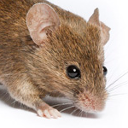| MGP_CASTEiJ_T0053123.1 | - | 5884 | 1239aa | MGP_CASTEiJ_P0053123 | Gene/transcipt that contains an open reading frame (ORF).Protein coding | | - | A single transcript chosen for a gene which is the most conserved, most highly expressed, has the longest coding sequence and is represented in other key resources, such as NCBI and UniProt. This is defined in detail on http://www.ensembl.org/info/genome/genebuild/canonical.htmlEnsembl Canonical, |
| MGP_CASTEiJ_T0053119.1 | - | 5219 | 1225aa | MGP_CASTEiJ_P0053119 | Gene/transcipt that contains an open reading frame (ORF).Protein coding | | - | - |
| MGP_CASTEiJ_T0053114.1 | - | 4717 | 1184aa | MGP_CASTEiJ_P0053114 | Gene/transcipt that contains an open reading frame (ORF).Protein coding | CCDS15794, CCDS50537, CCDS79757 | A0A0G2JDW4 A0A0G2JER3 A0A0G2JG91
A0A0G2JG99 A2AHB7 A2AHB8
A2AHB9 C0KTP6 Q6ZPR4
| - |
| MGP_CASTEiJ_T0053121.1 | - | 4169 | 1218aa | MGP_CASTEiJ_P0053121 | Gene/transcipt that contains an open reading frame (ORF).Protein coding | | - | - |
| MGP_CASTEiJ_T0053116.1 | - | 3774 | 1219aa | MGP_CASTEiJ_P0053116 | Gene/transcipt that contains an open reading frame (ORF).Protein coding | | - | - |
| MGP_CASTEiJ_T0053124.1 | - | 3714 | 1237aa | MGP_CASTEiJ_P0053124 | Gene/transcipt that contains an open reading frame (ORF).Protein coding | | - | - |
| MGP_CASTEiJ_T0053118.1 | - | 3612 | 1203aa | MGP_CASTEiJ_P0053118 | Gene/transcipt that contains an open reading frame (ORF).Protein coding | | - | - |
| MGP_CASTEiJ_T0053127.1 | - | 990 | 330aa | MGP_CASTEiJ_P0053127 | Gene/transcipt that contains an open reading frame (ORF).Protein coding | | - | - |
| MGP_CASTEiJ_T0053126.1 | - | 592 | 36aa | MGP_CASTEiJ_P0053126 | | | - | - |
| MGP_CASTEiJ_T0053122.1 | - | 6652 | No protein | - | An alternatively spliced transcript believed to contain intronic sequence relative to other, coding, transcripts of the same gene.Retained intron | | - | - |
| MGP_CASTEiJ_T0053125.1 | - | 3302 | No protein | - | An alternatively spliced transcript believed to contain intronic sequence relative to other, coding, transcripts of the same gene.Retained intron | | - | - |
| MGP_CASTEiJ_T0053128.1 | - | 2123 | No protein | - | An alternatively spliced transcript believed to contain intronic sequence relative to other, coding, transcripts of the same gene.Retained intron | | - | - |
| MGP_CASTEiJ_T0053120.1 | - | 1675 | No protein | - | An alternatively spliced transcript believed to contain intronic sequence relative to other, coding, transcripts of the same gene.Retained intron | | - | - |
| MGP_CASTEiJ_T0053129.1 | - | 795 | No protein | - | An alternatively spliced transcript believed to contain intronic sequence relative to other, coding, transcripts of the same gene.Retained intron | | - | - |
| MGP_CASTEiJ_T0053115.1 | - | 532 | No protein | - | An alternatively spliced transcript believed to contain intronic sequence relative to other, coding, transcripts of the same gene.Retained intron | | - | - |
| MGP_CASTEiJ_T0053117.1 | - | 2262 | 705aa | MGP_CASTEiJ_P0053117 | | | - | - |

